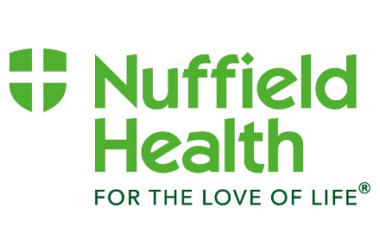The Supreme Court has upheld a ruling in favour of Nuffield Health to receive a mandatory 80% relief from business rates for a members-only gym in south London.
It ruled that the charity’s Merton Abbey gym qualifies as “premises which are occupied by a charity and used wholly or mainly for charitable purposes” after a challenge from the London Borough of Merton Council.
As a result, the charity remains entitled to a mandatory 80% relief from non-domestic rates at the facility, under section 43(5) and (6)(a) of the Local Government Finance Act 1988.
Public benefit argument
The council had argued that the Merton Abbey gym failed to qualify as being used for charitable purposes because the fees being charged to its members were too high for people of modest means to use its facilities.
It said these fees precluded the facility from meeting the charity’s requirement to provide public benefit.
However, the court ruled that the charity “plainly uses the Merton Abbey gym for the direct fulfilment of those charitable purposes”.
“The rich are as much a part of the section of the public benefited by Nuffield Health’s charitable activities as are the poor, and it must be assumed from its registration as a charity and from the fact that it is common ground that the trustees are not in breach of their fiduciary obligations that the poor are not excluded from benefit, on a view of Nuffield Health’s activities in the round, even if they are at the Merton Abbey gym,” it said.
“It follows that Nuffield Health does use the Merton Abbey gym wholly or mainly for its charitable purposes. Therefore, Nuffield Health is entitled to mandatory relief from business rates under section 43(6).”
Charity pleased with court’s decision
A spokesperson for Nuffield Health said: “As the UK’s largest healthcare charity, we are dedicated to our purpose of building a healthier nation, and each year we support more than 1 million people from a range of backgrounds and communities across the UK.
“We deliver this through our network of hospitals, fitness and wellbeing centres, healthcare clinics, our research and our free-to-access health and wellbeing programmes in local communities, empowering and enabling people to live a healthy life.
“Our status and impact as a charity has never been in question throughout this legal process, and we are pleased that the Supreme Court has reaffirmed the decision of the High Court and the Court of Appeal, providing clarity in relation to our rights to rates relief.”
Council accepts ruling
The council said it was disappointed in the result but accepted that the matter was now closed.
A spokesperson for the authority said: “It took the decision to pursue the case because of the implications for the public purse of this important principle of law, not just for Merton but also for other councils nationwide.
“The arguments were finely balanced as is evidenced by the fact that the council was given permission to take the case to the Supreme Court. However, we will of course now accept the decision and the matter is at a close.”
‘A sigh of relief’
Victoria Mahon de Palacios, partner at Wedlake Bell, said: “Organisations that provide benefit to fee paying members only can be charitable provided a sufficient section of the public can access such benefits (known as the ‘public benefit’ requirement); this means ensuring that those with modest means are not excluded from benefit.
“Fee-charging charities would usually meet this requirement if they make some allowances for those who would not otherwise be able to afford their membership fees (eg discounted memberships, certain free services etc).
“Nuffield Health fitness centres across the country will no doubt breathe a sigh of relief with today’s judgement, in favour of Nuffield Health, given that the Supreme Court has decided that whether a charity meets the public benefit requirement under charity law for the purposes of relief from business rates is assessed against the activities of the charity as a whole and not whether each site where the charity operates meets the requirement.
“The judgment will bring comfort to charities who operate at various premises; had the judgement gone the other way, such charities would now be needing to carefully review whether each of their sites meet the public benefit requirement under charity law so as to continue claiming rates relief on charity grounds.”
The BDB Pitmans team representing the charity was led by Richard Langley, partner in the litigation team, with assistance from Nicola Evans, charities counsel, and Olivia Peake, senior associate.
Issue may be ‘controversial’
Philip Kirkpatrick, partner at Bates Wells, said the decision will “dismay many people in the sector who thought they had a handle on what public benefit is all about”.
“The Supreme Court has now confirmed the decisions of the courts below that this is to be assessed by reference to Nuffield’s purposes generally. Its main purpose is, in summary, the advancement of health. That purpose is for the public benefit. That is the purpose for which Nuffield uses the premises and, therefore, it is entitled to 80% rate relief,” he said.
“The issue that people may find controversial is that Nuffield is not required to show that the premises in question are themselves used for the public benefit. Indeed, the Court of Appeal decided unanimously that they were not because, in effect, the poor were excluded from meaningful provision.
“The Supreme Court simply concluded that it did not need to decide the matter. Instead, it has confirmed that the public benefit test requires the activities of a charity to be viewed as a whole and not provision by provision. This opens the way for charities, particularly perhaps in the fields of health and education, to have a range of functions or facilities that exclude the poor provided that most of their facilities do not so exclude them.”
Meanwhile, Richard Bray, Charity Tax Group chair, said: “This is an important case and the court’s decision provides very helpful clarification in a situation where charity law may have clashed with ratings law.
“The decision on trading is also key in accepting that a charity which is carrying out ‘primary purpose’ trading onsite should not be regarded as using the site for a purpose other than carrying out its charitable purposes.”
Related Articles











